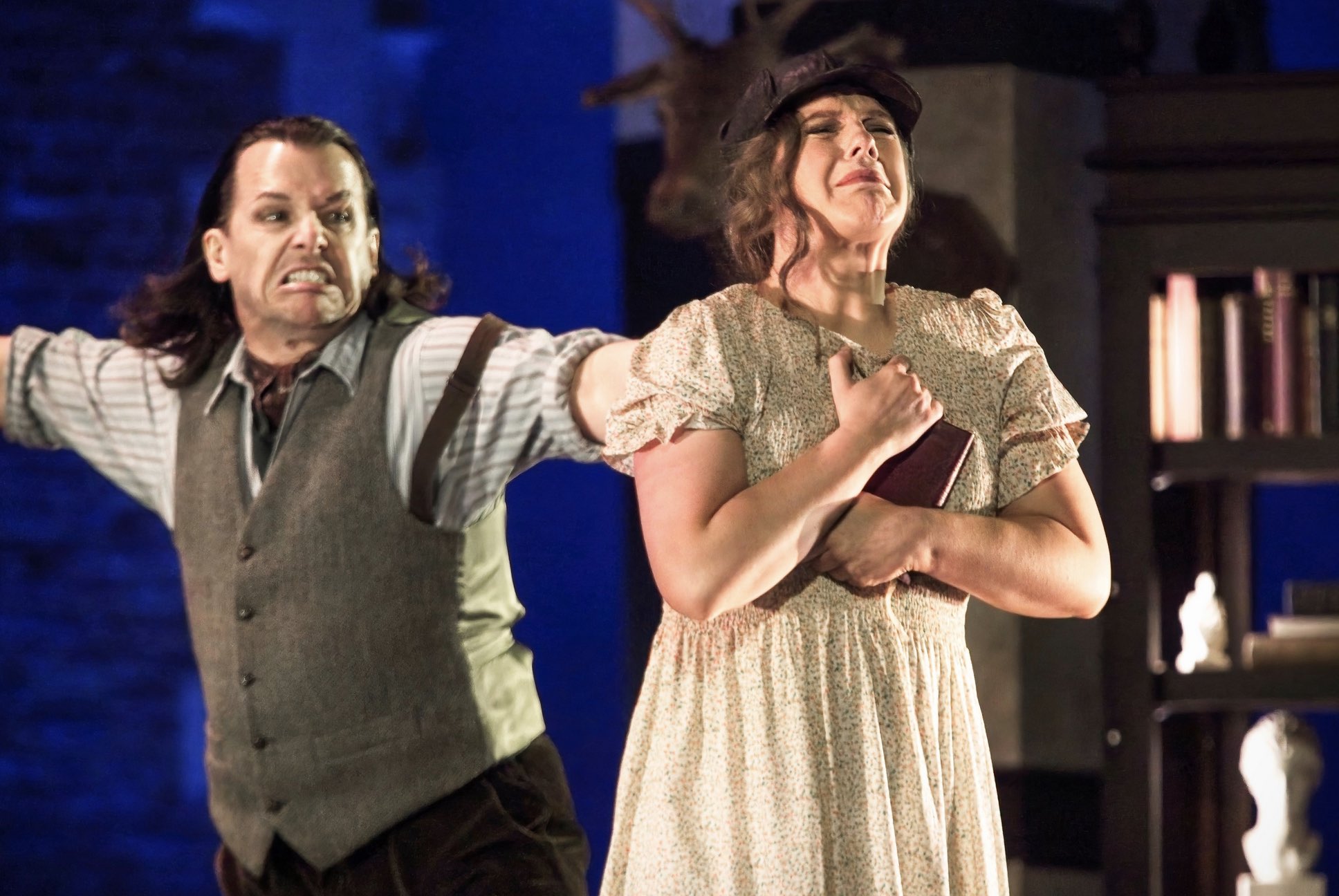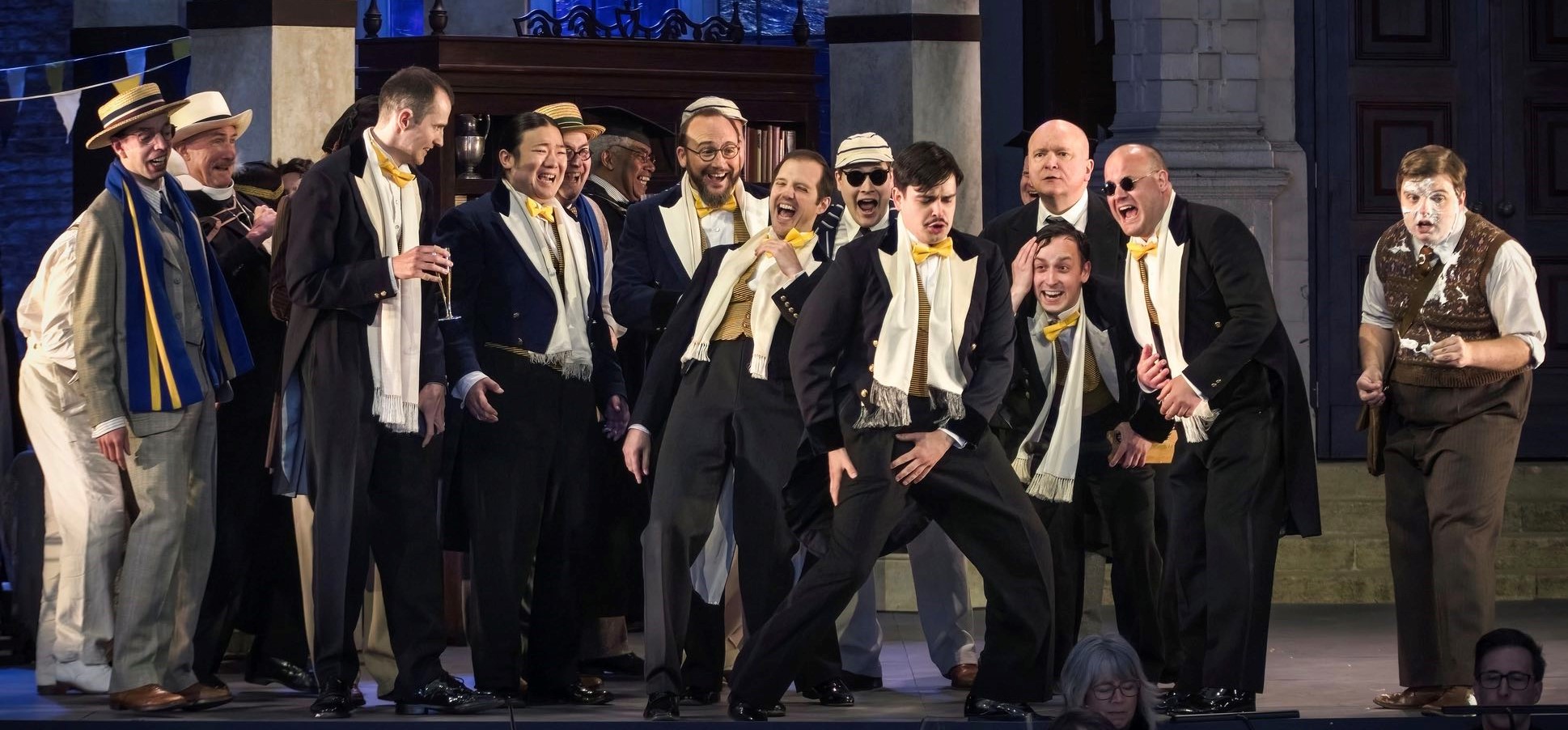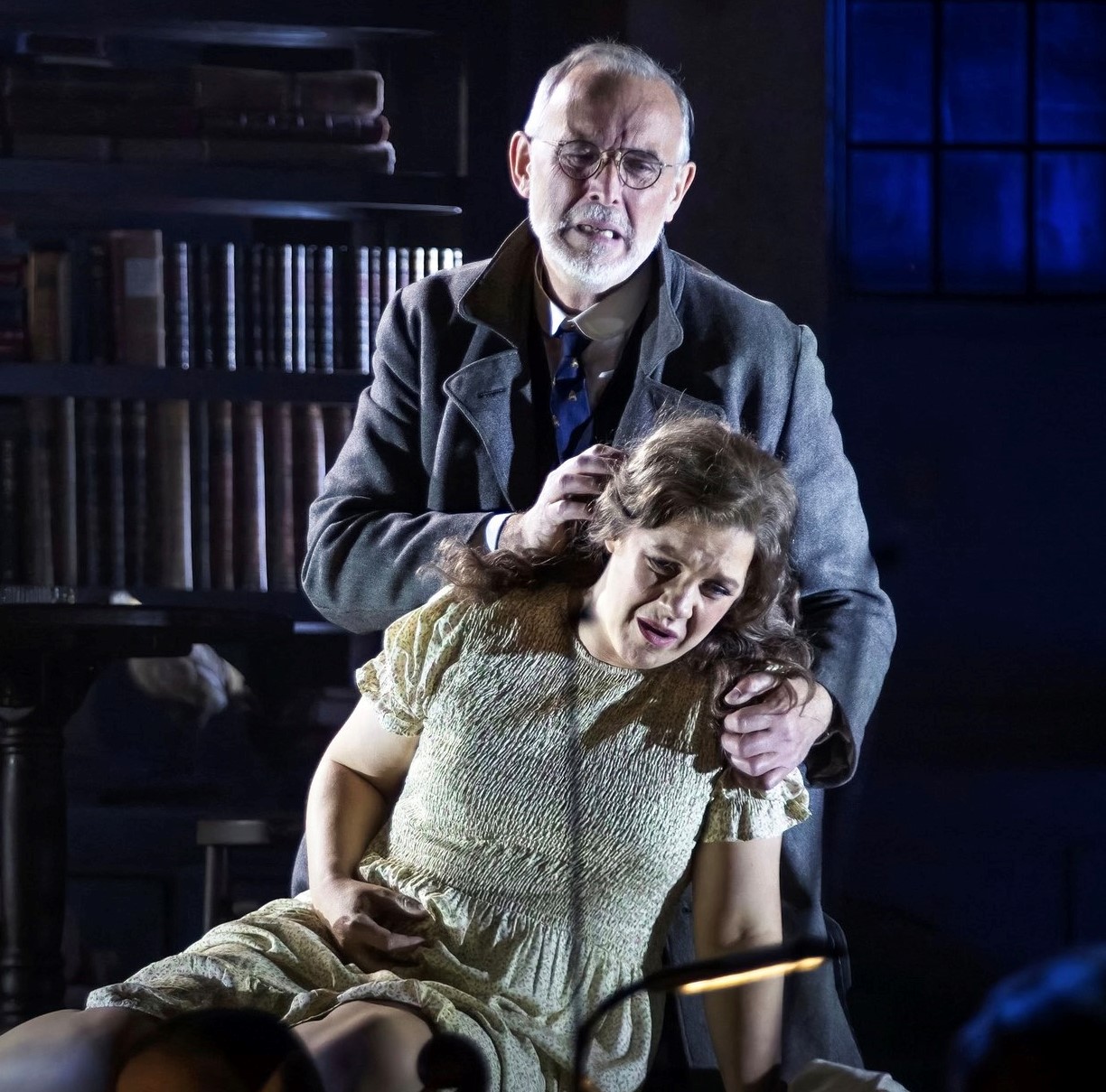Reviews
Over the Top Rigoletto Does Little for Verdi
 LONDON—Founded in 1996, Opera Holland Park (OHP) is one of British opera’s success stories. The company’s 1,000-seat canopied auditorium abuts Holland House, a once bomb-damaged Jacobean mansion located in open parkland in the borough of Kensington and Chelsea. The vibe is country house opera festival but situated in the heart of London. A canny mix of staples and rarities comes with a reputation for spotting talented singers on the way up. With seats half the cost of Glyndebourne, what’s not to like?
LONDON—Founded in 1996, Opera Holland Park (OHP) is one of British opera’s success stories. The company’s 1,000-seat canopied auditorium abuts Holland House, a once bomb-damaged Jacobean mansion located in open parkland in the borough of Kensington and Chelsea. The vibe is country house opera festival but situated in the heart of London. A canny mix of staples and rarities comes with a reputation for spotting talented singers on the way up. With seats half the cost of Glyndebourne, what’s not to like?
Seen June 7, the 2023 season opener falls into the “staples” category, though the production is anything but standard fare. When Verdi composed Rigoletto—based on Victor Hugo’s already controversial play Le roi s'amuse—sexual predators were no doubt as prevalent as they are today. But in 1851, the Italian censors were not concerned with issues like consent or rape. What troubled them was the onstage depiction of a reigning monarch kidnapping women and paying for prostitutes. Verdi and his librettist accordingly shifted the action back in time and transformed Hugo’s king into a local duke of Mantua.
OHP’s director Cecilia Stinton has correctly identified Rigoletto as a classic #metoo story, recognizing that it can be relocated in time and social milieux. Setting it at an elite English university in the 1920s, however, throws up more problems than anyone here is able to solve.
Stinton’s “duke” is a privileged upper-class bully whooping it up in his college rooms surrounded by tittering flappers and toadying friends. Within this miniature fiefdom, Rigoletto is depicted as a bowler-hatted university porter. Medals and a leg brace suggest he saw action on the Western Front. All well and good, but why is a silver-haired Rector among the blackguards kidnapping girls to satisfy an overprivileged student’s private fancy?
The opera opens in silence as a fellow student receives a ducking in a pail of water. Other pranks involve custard pies in the face and stripping the university’s blustering chancellor of his trousers (Stinton’s representation of Count Monterone). There’s often an edge to the jokes, but by reducing Verdi’s atmosphere of extrajudicial murder and sexual violence to the level of undergraduate tomfoolery, the production fails to convey a world in which Rigoletto would resort to employing a hitman. And is it likely that a student could ritually humiliate and subsequently see off the head of his college?
This on-the-whole unconvincing conceit is played out on Neil Irish’s well-observed, respectably realized wood-paneled set, well-lit by Caitlin Fretwell Walsh, and with costumes smart and in keeping with period. The OHP stage comprises a rear area with a thrust stage coming out in front of the orchestra. The forestage is by far the most effective area for singers, yet Stinton barely uses it, reserving it for Gilda’s room in Act I and the occasional bit of passing action.

Opera Holland chorus as a bunch of arrogant collegiates eager to humiliate their lessers
Otherwise, the blocking is fussy, often distractingly so: a dinner party goes on behind Rigoletto’s entire first scene with Gilda, for example, while sozzled girls wander in an out when the audience’s attention should be elsewhere. There’s plenty here to attract the eye, but you long for less, including most of Caitlin Fretwell Walsh’s busy movement direction (though the coordinated acting out of Gilda’s abduction was droll).
The best thing here is Lee Reynolds’s incandescent conducting. His interpretation is flexible, punchy, and full of subtle detail that brings out the colors in Verdi’s score. He drives the big moments hard, often thrillingly so, but is always sensitive to the needs of singers. The modestly scaled back City of London Sinfonia responds with enthusiasm, while the men’s chorus is equally impressive, singing with virile, idiomatic tone and considerable discipline.
 As Rigoletto, Stephen Gadd was clearly struggling with a lingering throat infection at this performance. Indeed, it was a miracle he continued to the end after conking out a couple of times and having to drop down the octave on several occasions. It was a pity, as his dark, gritty baritone feels right for Rigoletto, and he managed to create a dignified portrait of a bitter, battle-scarred loner with nothing to live for but his over-closeted daughter.
As Rigoletto, Stephen Gadd was clearly struggling with a lingering throat infection at this performance. Indeed, it was a miracle he continued to the end after conking out a couple of times and having to drop down the octave on several occasions. It was a pity, as his dark, gritty baritone feels right for Rigoletto, and he managed to create a dignified portrait of a bitter, battle-scarred loner with nothing to live for but his over-closeted daughter.
As Gilda, Alison Langer delivers the finest singing of the night. In her mumsy frock and spinsterish bob she looks at first a more likely candidate for Rigoletto’s wife, but she soon comes into her own. Hers is the kind of opalescent soprano you hear on records from the golden age of singing. “Caro nome” is spun silk, nimble, beautifully phrased, and served up with a real sense of wonder. Elsewhere, her tone swells to sumptuous effect.
Elgan Llyr Thomas is the Duke of Mantua, singing with ardent lyricism, even if the voice doesn’t always carry from the rear of the acting area. Sitting on sustained high notes might not be his forte, but the featured top in “La donna e mobile” suits him well (despite having to compete with the woman playing darts downstage of him!)
Simon Wilding has menace as well as the bottom notes for Sparafucile, though the voice wobbled at times and he slipped behind the beat more than once. Hannah Pedley and Georgia Mae Bishop are convincing as Maddalena and Giovanna. Among the duke’s assorted sycophants, Jacob Phillips stands out as Marullo, exhibiting an arresting baritone: smooth, powerful, and Italianate. One to watch.
So, perhaps not the ideal season opener, but with Hansel and Gretel, La Bohème, Gilbert and Sullivan’s Ruddigore, and a new opera by Jonathan Dove to come, OHP offers much to look forward to.
Top: Simon Wilding and Alison Langer as Sparafucile and Gilda
Bottom: Stephen Gadd and Alison Langer as Rigoletto and Gilda





 FEATURED JOBS
FEATURED JOBS

 RENT A PHOTO
RENT A PHOTO


